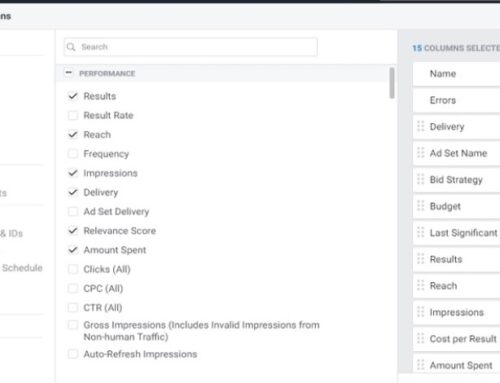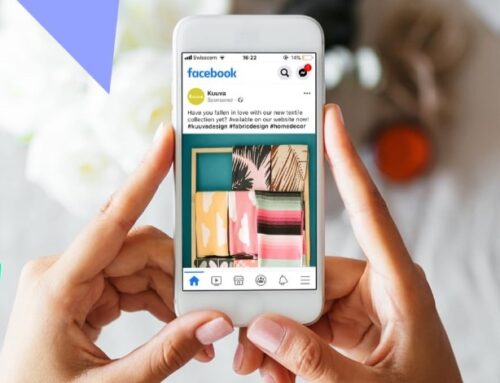What does it mean to market something?
When it all comes down to marketing, brands have to ask themselves: what are we talking about essentially, stripped off from the usual jargon and fluffy terms, what is marketing?
My answer is this: Marketing is about getting and keeping a customer, and ensuring the customer prefers doing business with you over your competitors.
This is simple to understand, but there are 3 parts in that sentence.
- To get a customer
- To keep the customer
- To be the customers’ preferred choice over your competitors
When you engage with a marketer, the above are the things they should be looking to deliver. It may sound rather obvious, but almost nobody does it.
The truth is that the marketplace is a sea of loud and useless noises, nobody can deny that. That service you provide, you probably find 10 other competitors who can do the same thing for your customers, maybe even better.
How do you differentiate from them?
Or rather, how do you drown out the noise and rise on top? You have to be known for something, anything that can be remembered easily by your customers. Take the message, find a mighty hammer and drive it into the minds of the customers.
What is your message, or rather; will it be worth anything? First, you could look into your competitors. Usually, they will show you what to do and what not to.
To be the customers’ preferred choice means to own a spot in the customers’ minds. And a business should not try to be like their competitors, all touting the same old nonsense that the market really doesn’t care about.
Look at some of these slogans from the top companies I picked up in the insurance industry:
“Healthier, Longer, Better Lives.”
“Redefining standards.”
“Listening, Understanding, Delivering.”
Does anyone recognize any of these slogans? When you ask your friend who had recently purchased some insurance for himself and why he chose that particular brand, did he reply “because I get to live healthier, longer and a better life.”?
“I bought from this company because they are redefining standards.”

Firstly, nobody says that
Hence, these slogans by the billion-dollar companies are not worth a lot! Nobody remembers any of it. Because the opposite claim cannot hold true by itself.
Everybody wants to be known as an honest person, how many actually proclaim themselves to be fraudulent and scummy? None.
Does claiming the obvious hold any value in the minds of your customers? The answer is a definite: No!
Secondly, for anything to have value, the opposite must also have value in itself. Try reversing the above slogans I just mentioned.
Does any company really stand for “Unhealthy lives, make you live shorter, miserable lives.” and “we are always lowering standards.” and “Not listening, we don’t care, and also we don’t deliver.”
No company will ever stand for that.
So the brands cannot be distinctly differentiated.

Your friend likely bought a brand because of word-of-mouth from a family member or got stopped by an over-friendly, convincing salesperson.
A brand’s slogan sums up its core strategy.
If your slogan cannot be remembered, your core brand strategy cannot be remembered, you’re unlikely to perform numbers 2 and 3 in my 3 objectives at the beginning. Let me repeat that it should be:
- Get a customer
- Keep the customer
- Be the customer’s preferred choice over your competitors
If your customer doesn’t remember you, you are unlikely to accomplish 2 and 3.
A strong brand is able to strike the heart of a customer, it is one of the most lethal marketing forces known to man and that is; the power of perception.
A strong brand can command a strong perception in the market. I will give a brief introduction on this topic here and dedicate a separate article for this topic in the future. If I stand by the supermarket and choosing a cola brand, will i go with Coca-Cola or Rise Cola? (not a real brand name)
Humans live by perceptions
Most people believe that there may be no hard facts or objective reality in this world. It is the same for marketing. You see what you want to see, you hear what you want to hear, and you taste what you want to taste. Different people hold different opinions about the same thing, and because of their opinion (or perception), subsequently becomes their reality.
Perceptions are our reality. The wine tasting field is an example, the same judges often give different scores for the same bottle of wine. Pour a 3-year-old wine into a 100-year-old bottle and have your friend taste it. He will claim to have tasted something spectacular.
Which country makes better cars? America or Germany? The premium perception that Germans acquired gave them a competitive edge in the mind. Facts do not matter as much as long as humans make buying decisions based on perceptions.
There is a reason why people prefer to wear Swiss watches not Italian watches but prefer to drive Italian cars, and not Swiss cars.
The power of perception is prevalent in human nature
The country Taiwan has a strong foothold in the bubble tea industry. It is almost impossible to out-compete a brand with a Taiwanese origin. A bubble tea brand founded in Singapore or from Taiwan? Which one tastes better? I think we know.
The perception of a brand is the power you leverage on.
That is essentially branding, having your brand widely perceived for something specific and measurable.





